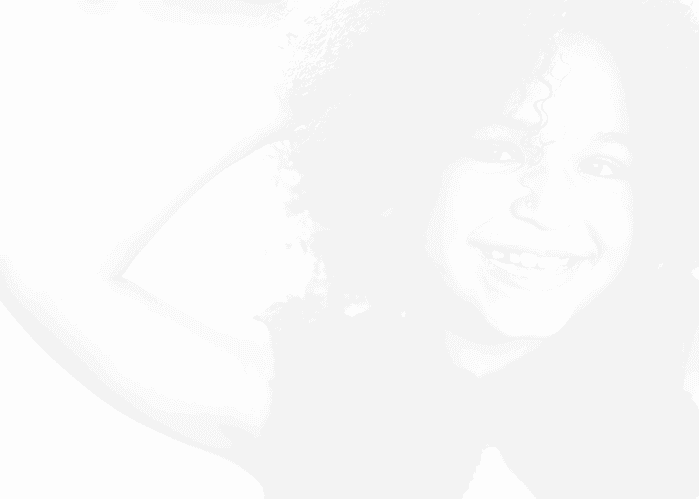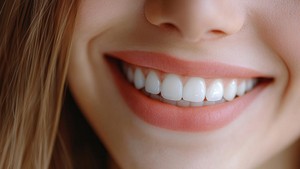One common question many people have regarding their bite is whether their front teeth should touch when they bite down.






Save $250 off braces or Invisalign!*
Schedule your appointment online.
One common question many people have regarding their bite is whether their front teeth should touch when they bite down. The answer to this can vary based on individual circumstances, but understanding the basics of an ideal bite can offer valuable insights.
Recognizing what constitutes an ideal bite is vital for determining proper teeth alignment. Factors such as your resting bite, chewing habits, and even speaking patterns play significant roles in how your teeth align. Misalignment can impact not just your bite but also your overall oral health. So, are your teeth supposed to touch when you smile? Let’s find out.
At Uncommon Orthodontics, we specialize in addressing teeth misalignment and helping you achieve a healthy bite. In the following sections, we will explore various aspects of your bite and how it impacts your oral health and well-being.
Understanding the Ideal Bite
An ideal bite refers to the way your upper and lower teeth align when you close your mouth. Ideally, your front teeth should touch lightly when you bite down, while your back teeth should fit together comfortably. Achieving this balance is crucial for your overall dental health.
A proper bite is essential for several reasons. Firstly, it ensures effective chewing and aids in the proper digestion of food. When your teeth align correctly, they can break down food into smaller, manageable pieces, making it easier for your digestive system to process and absorb nutrients.
A misaligned bite, often referred to as a bad bite, can lead to various oral health issues. It can cause excessive wear and tear on certain teeth, leading to them becoming worn down or cracked over time, which can result in tooth sensitivity, pain, or even tooth loss if not addressed.
Additionally, a bad bite can contribute to temporomandibular joint disorder (TMJ), which can cause jaw pain, headaches, and difficulty in opening and closing your mouth. It can also lead to speech issues and an increased risk of gum disease and tooth decay due to challenges in cleaning misaligned teeth properly.
At Uncommon Orthodontics, we understand the importance of a proper bite and its impact on your dental health. Our team of orthodontic specialists offers various treatments to correct misaligned bites and enhance your oral well-being, whether through braces, aligners, or other orthodontic interventions. We are dedicated to providing personalized care to help you achieve a healthy, confident smile.
Determining Your Resting Bite
When considering your bite, understanding the proper position of your front teeth at rest is essential. Many people wonder, ‘Should your front teeth touch when you bite down?’ or ‘Is biting down on your teeth bad?’ Let’s delve into this topic to understand the natural resting position of your teeth.
Typically, your front teeth should not touch when at rest. The natural resting position of your teeth includes a small gap between the upper and lower front teeth, known as the ‘freeway space.’ This gap allows for proper jaw alignment and relaxation of the jaw muscles.
If your front teeth do not rest properly, it can impact your dental health and overall well-being. Constantly touching or clenching your teeth can place excessive pressure on your jaw joints and muscles, leading to discomfort, jaw pain, and headaches. It can also cause abnormal wear and tear on your teeth, resulting in dental issues such as chipping, cracking, or sensitivity.
If you notice that your front teeth are consistently touching when at rest, it’s crucial to consult with an orthodontist. They can evaluate your bite and recommend appropriate treatments to align your teeth and improve your overall oral health.
Exploring Chewing and Your Bite
Many people wonder if their front teeth should touch when they bite down while chewing. The answer varies based on individual dental anatomy and jaw alignment.
For some, their front teeth naturally come into contact when biting down, while others may have a slight gap between their front teeth. Both scenarios can be normal as long as there are no underlying dental issues.
However, if your front teeth do not touch when biting down, it’s important to consult with an orthodontist or dentist. They can evaluate your bite and determine if any adjustments are necessary.
The proper way to bite down while eating is to let your molars, or back teeth, do most of the work. The molars are designed for grinding and chewing food, while the front teeth play a minor role in biting into food.
Improper biting can affect more than just dental health; it can impact digestion as well. Inefficient chewing due to misalignment can hinder food breakdown and nutrient absorption. Additionally, a bad bite can put extra stress on certain teeth, potentially leading to dental issues such as tooth wear or jaw discomfort.
If you have concerns about your bite or experience dental discomfort, scheduling an appointment with an orthodontist or dentist is recommended. They can assess your bite and provide guidance on necessary treatments or adjustments.
Speaking and Your Bite
The alignment of your bite significantly influences speech clarity. But should your front teeth touch when you speak? Let’s explore the relationship between your bite and speech for a better understanding.
Your front teeth should not touch when you speak. Instead, there should be a small gap between your top and bottom teeth, known as an open bite, which allows for proper airflow and tongue movement during speech.
Having an open bite ensures that your tongue can move freely, enabling clear pronunciation of sounds and words. When your front teeth touch while speaking, it can cause a lisp or affect the production of certain sounds.
Incorrect bite alignment can lead to various speech issues. For example, if your top and bottom teeth do not align properly, it can result in mispronouncing consonant sounds like ‘s,’ ‘z,’ ‘sh,’ or ‘ch.’ This misalignment can make articulating these sounds challenging, leading to speech difficulties.
An incorrect bite can also hinder enunciation and overall speech clarity. Misaligned teeth can create obstacles for tongue movement, affecting sound production.
If you experience speech issues or suspect that your bite alignment contributes to your speech difficulties, consulting an orthodontist is essential. They can assess your bite and recommend treatments, such as braces or aligners, to correct alignment issues and improve speech clarity.
Addressing Teeth Misalignment
If your front teeth touch when you bite down, it could indicate teeth misalignment. While this issue may seem minor, it can lead to various dental problems if untreated. Fortunately, orthodontic treatment can effectively correct bite misalignments and help you achieve a proper bite.
If your teeth touch when they shouldn’t, consulting an orthodontist specializing in dental misalignments is important. They will thoroughly evaluate your bite and recommend suitable treatment options based on your specific needs.
Orthodontic treatment offers several options for addressing teeth misalignment and achieving a proper bite. One common approach is braces, which involve attaching brackets to your teeth and using wires to gradually move them into the correct position. Braces can effectively correct bite misalignments and align your teeth for a proper bite.
In addition to traditional braces, more discreet options are available. Clear aligners, such as Invisalign, are custom-made trays that gradually shift your teeth into alignment. They are virtually invisible and can be easily removed for eating and oral hygiene routines.
Another option for correcting bite misalignments is orthodontic appliances. These devices address specific dental issues and can be removable or fixed. Your orthodontist will determine the most suitable appliance for your situation to achieve the correct bite.
If your front teeth touch when you bite down, seeking professional advice from an orthodontist is essential. They will guide you through available treatment options and help you achieve a properly aligned bite for optimal dental health.








